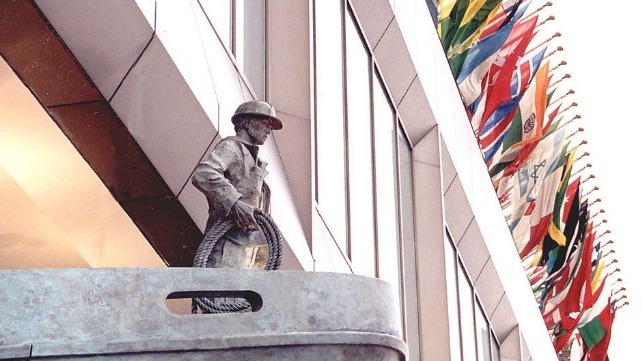IMO's Draft CO2 Amendment Stirs Controversy

This week, the IMO's Intersessional Working Group on Reducing Greenhouse Gas Emissions from Ships produced a draft of a new MARPOL amendment addressing shipping's carbon emissions, and it is expected to be approved at the next Marine Environment Protection Committee meeting. If it passes at MEPC 75 (November 16-20) and MEPC 76 (mid-2021), it would be the first binding regulation that IMO has adopted pursuant to its 2018 "Initial Strategy" on greenhouse gas emissions.
In a statement, IMO hailed the as-yet-unreleased agreement as a "major step forward," but environmental NGOs with observer status have described it as "cosmetic." Clean Shipping Coalition member Transport & Environment suggested that given the draft's contents, it is time for individual nations to regulate shipping's carbon emissions on a regional basis.
Rating system
According to the International Chamber of Shipping, which contributed to the draft, the regulation features a mandatory "A-E rating system" in the expectation that charterers will offer their business to highly rated, fuel-efficient ships. Ships with a "D" or "E" rating would have to submit an improvement plan for attaining at least "C" status. ICS suggests that low-rated ships would face negative consequences on the market, and that this would provide a business incentive to become more fuel-efficient.
“The willingness of governments to cooperate and achieve consensus in the very difficult circumstances of a virtual meeting is to be applauded, and we are pleased that the proposals supported by ICS, in co-operation with a wide range of governments on all sides of the debate, forms a central part of the agreement," said ICS Secretary General Guy Platten in a statement. “Industry needs certainty, and this agreement provides a clear signal about the investments we need to make to further reduce our emissions."
Compliance requirements
Environmental NGO Transport & Environment, which is part of an advocacy coalition with observer status at IMO, suggested that some member-states have "actively worked to undermine" the IMO's Initial Strategy on greenhouse gas emissions - and that the agreement produced this week reflected these efforts. According to T&E, the proposal lacks a carbon intensity target and weakens existing requirements for efficient engine selection. In addition, according to T&E, ships would be allowed to operate with noncompliant "D" or "E" ratings for three years before they have to file an improvement plan. If they opt not to comply indefinitely, they would be permitted to do so without legal penalty, as all enforcement clauses have been removed from the proposal.
Overall, according to T&E and its partners, the draft regulation would reduce the business-as-usual emissions trajectory of shipping by just 0.6 to 1.3 percent by 2030.

that matters most
Get the latest maritime news delivered to your inbox daily.
"We cannot tell the public that progress is being made when their representatives come to IMO just to thwart CO2 regulation on the industry to protect short-term profits, rather than protecting their own citizens from the escalating impacts of the climate crisis," said T&E in a statement.
T&E suggested that after 23 years of greenhouse gas discussions at IMO, it is time for "countries to address shipping at the national and regional levels," as the European Union is contemplating. "EU countries should work through the European Green Deal to fill the gap left by the IMO," said T&E shipping program director Faig Abbasov.
